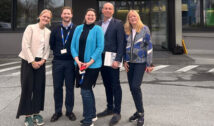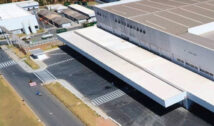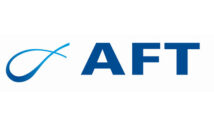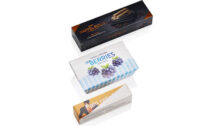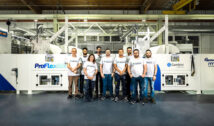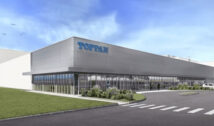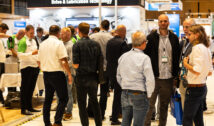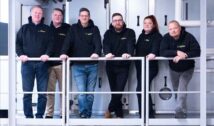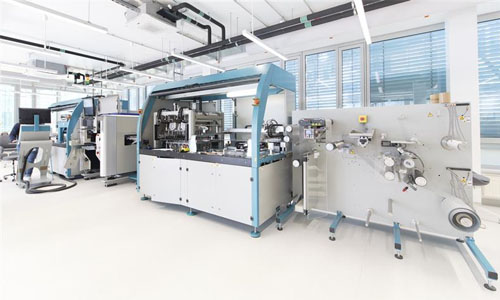
The company’s new R&D facility in Munich is set to greatly enhance the development of RFID and wireless IoT-based products and applications for customers and partners worldwide
Tageos, a global leader in the design and manufacture of innovative, high-performance RFID inlays and tags and part of the Fedrigoni Group, today proudly announced the grand opening of its new state-of-the-art research and development facility in Munich, Germany. The Tageos Innovation Center of Excellence (ICoE) is the company’s bold response to a strong customer and market demand to drive the development of the latest products and new applications in RFID, HF & NFC and the wireless Internet of Things. As a new, integral part of Tageos’ existing R&D and innovation capabilities, the ICoE’s areas of expertise now also include special antennas for RFID inlays and tags, emerging RF technologies like Bluetooth® Low Energy (BLE), as well as the attachment of flexible batteries, sensors and other innovative components.
In addition to serving as a technology innovation hub, the ICoE offers Engineering-as-a-Service (EaaS) capabilities that provide comprehensive support for customers and partners worldwide for further optimizing product requirements technically and commercially, and leveraging EaaS as a resource to prototype and industrialize new products. Tageos’ highly skilled and experienced teams can design, build and test final items in smaller quantities. Volumes at scale will be seamlessly passed to the company’s high-quality, certified production facilities in France, the US and in China, with annual production capacities of more than 11 billion units today. Additional EaaS offerings include project consulting and application engineering, optimization of technical processes as well as programming and implementation support to ensure the best technical and business fit.
The new Tageos’ ICoE joins the Fedrigoni Group’s Innovation Center in Verona (Italy) and represents the foundation of a new European hub pioneering the exploration of cutting-edge technologies in the RFID and Internet of Things, and the research and development in the world of smart papers and labels. RFID is increasingly strategic for Fedrigoni, which is exploiting every possible synergy with its two businesses: the industries served by the Group – from luxury, to pharmaceutical, from wine & spirits, to food, from beauty to FMCG – are in fact looking more and more for innovations to enable authentication, brand protection, traceability, as well as customer experience for their products and packaging.
Overall, the new ICoE represents a significant commitment and dedication by Tageos in terms of innovative strengths, product development, technical resources and manpower. The Munich region is known as a technology center with a vibrant ecosystem, and the ability to tap into this was one of the deciding factors for the location. The new site is a 700+ m² dedicated R&D center that currently employs approximately 15 employees. It represents a multi-million Euro investment and will further strengthen Tageos’ strategy to accompany and support customers and business partners throughout the RFID and wireless IoT ecosystem. In addition to the company’s HQ in Montpellier, France, and other production sites in Fletcher, USA, and Guangzhou, China, the Innovation Center of Excellence in Munich marks a clear signal to maintain and expand the company’s pioneering role and market leadership position.
Supporting Customer Demands and Latest Market Trends
Tageos will also offer comprehensive testing and expanded support levels at the new ICoE to help customers scale their own production processes for high volume manufacturing of NFC and RFID-enabled labels or other types of connected physical items with embedded inlays. This service can be provided in small batches to fine-tune manufacturing parameters as well as on larger scale.
As more and more industries use RFID technology to solve operational challenges, the demand for different form factors and materials has also increased. For example, printed antennas are a bleeding-edge innovation, enabling ultra-thin, flexible, cost-effective and sustainable RFID inlays for smart packaging and smart labels.



